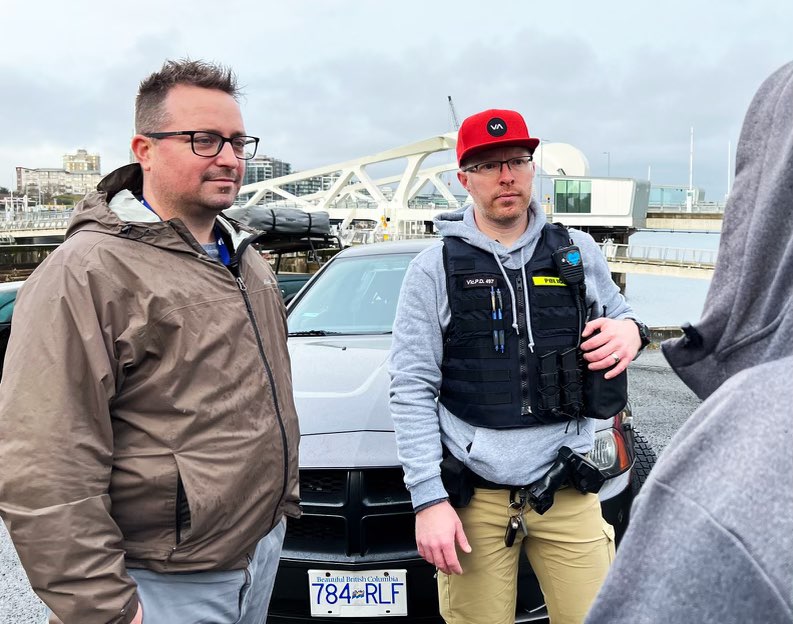Joint venture between VicPD and Island Health provides “robust response”

Photo provided by VicPD.
Last month, the Victoria Police Department (VicPD) implemented the Co-response Team (CRT) and, according to Chief Del Manak, the team is already seeing success.
This partnership with Island Health aims to improve VicPD’s response to calls that involve mental health crises by sending registered mental health clinicians along with officers to situations that require it. The CRT responds to calls such as suicide attempts, psychosis, overdoses, as well as family conflict and shelter issues.
“To have mental health professionals with us in the first instance when we respond to these calls is going to provide a better duty of care,” Manak said in an interview with the Martlet. “It’s going to provide a more robust response.”
According to Manak, the team has already been successful in several incidents. He noted one call where the mental health professional created rapport and dialogue with an individual. As a result, the CRT established that the person had not taken their medication and helped them fill their prescription. There was no need to arrest the individual or take them to the hospital. “It was a win/win,” said Manak
The role of the CRT also doesn’t stop at the call. The CRT looks to build rapport with the individual they are dealing with, and connect them to services that can help them in the future.
This approach has received praise, including from B.C.’s Minister of Mental Health and Addictions, Jennifer Whiteside. “When people are in crisis because of mental health or substance use challenges, they need to be met with care and compassion,” said Whiteside in a press release. “The new Co-Response Team in Victoria will support people in distress and connect them to the help they need and deserve.”
Moreover, with young people aged 15–24 at the highest risk for mental health issues and substance use, the CRT bodes well for improving interactions between police and students. Likewise, this is a major step since an RCMP officer struck and dragged UBC Okanagan nursing student Mona Wang during an on-campus wellness check.
Farida Abdoulage, a volunteer with the Anti-Violence Project at UVic, spoke to the Martlet about the positive step that VicPD is taking.
“Often there’s a lot of pressure on police to kind of know these things, whereas mental health professionals are specialized in these [cases],” said Abodulage. She also noted that this move should not prevent officers from learning how to deal with mental health crises themselves. This is an important emphasis, as the CRT only operates between 8 a.m. and 8 p.m.
UVic students living on campus will not benefit from the CRT as they are serviced by the Oak Bay and Saanich police departments. However, there has been a growing number of these units across the country.
While the CRT goes a long way to change the way police interact with the public, Manak emphasizes the need for the police to be present for safety reasons.
“The police are the primary response, and they have to be,” said Manak. “If [a mental health crisis] presents itself, we would stabilize the situation and then we would now take a secondary role and back away, and allow the mental health professional to start engaging with that individual.”
“I think the biggest takeaway is that the CRT is a collaborative effort to reduce harm to people in crisis. That’s the goal, and I’m confident that this team is going to be able to achieve that.”







